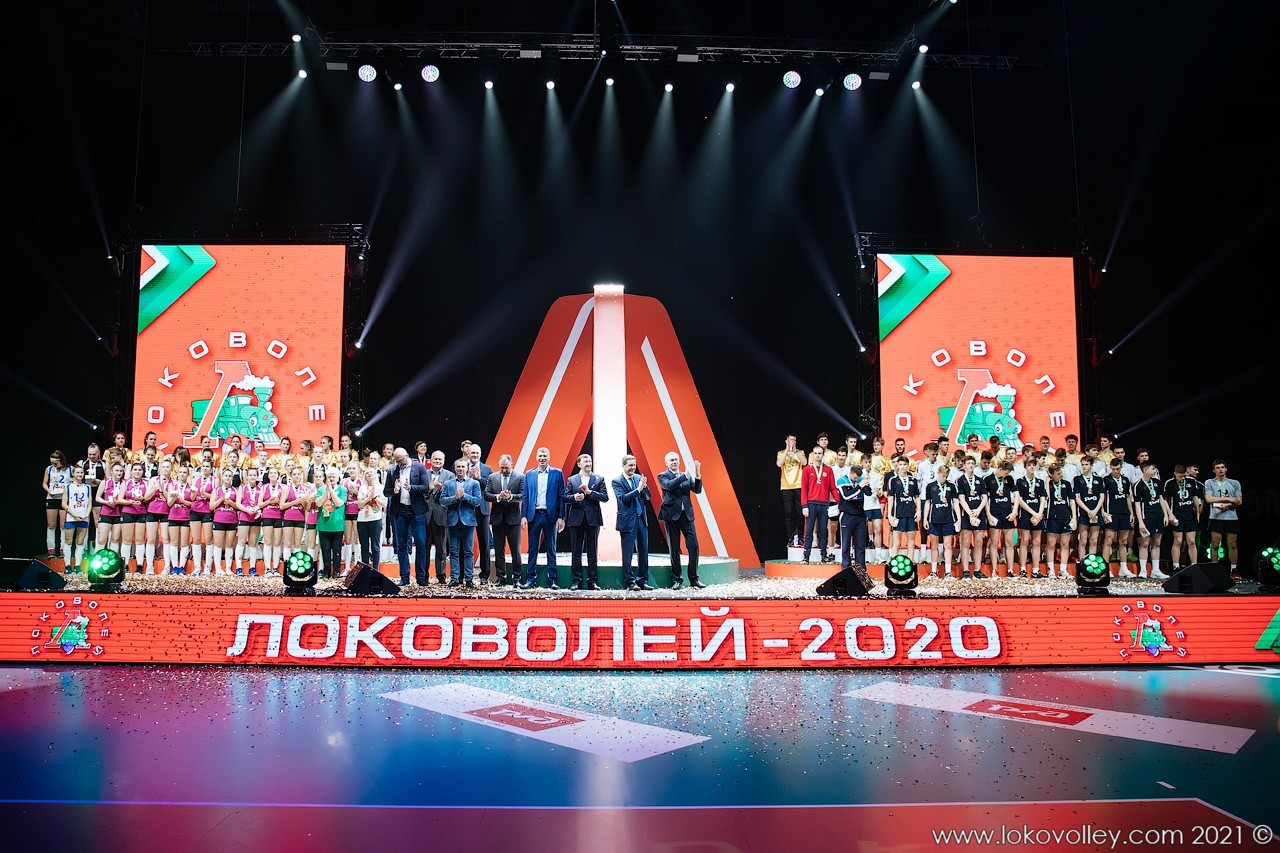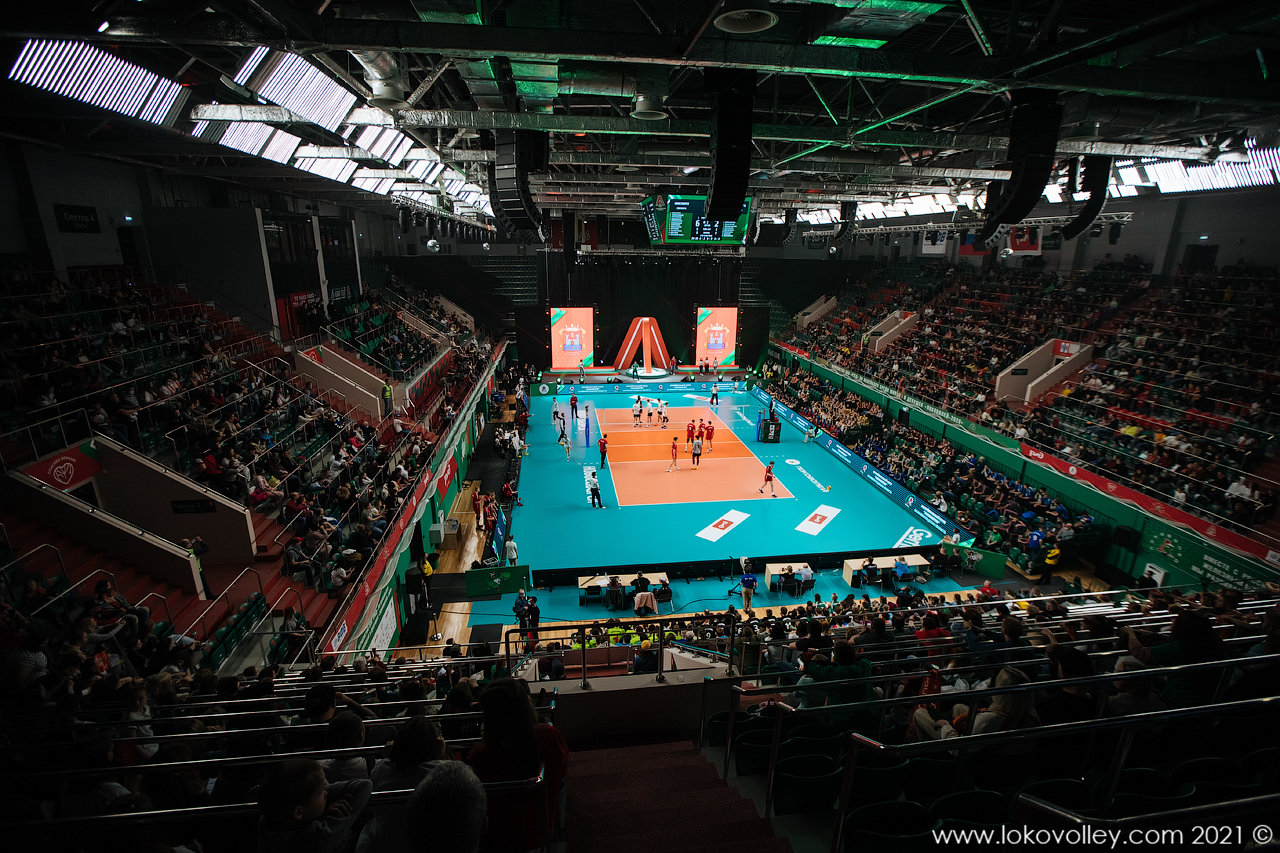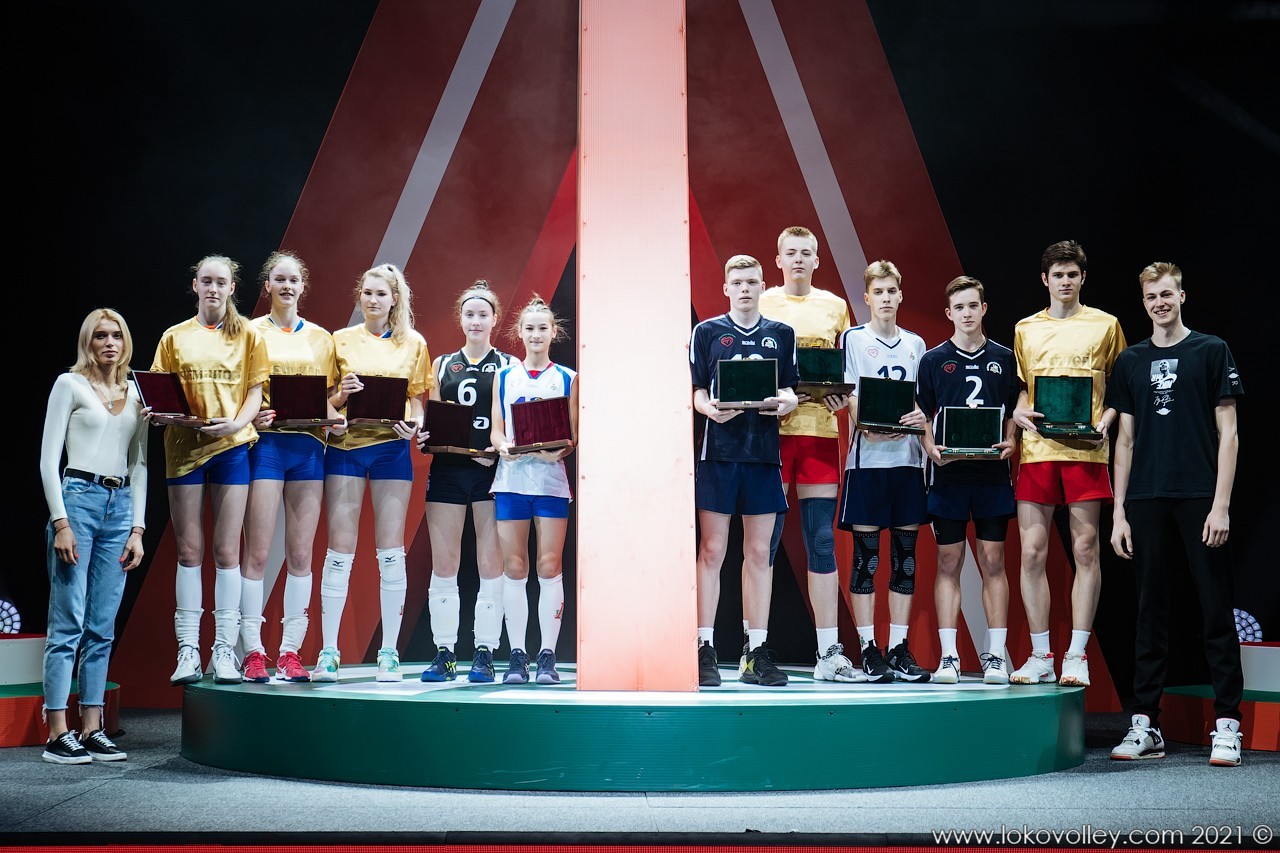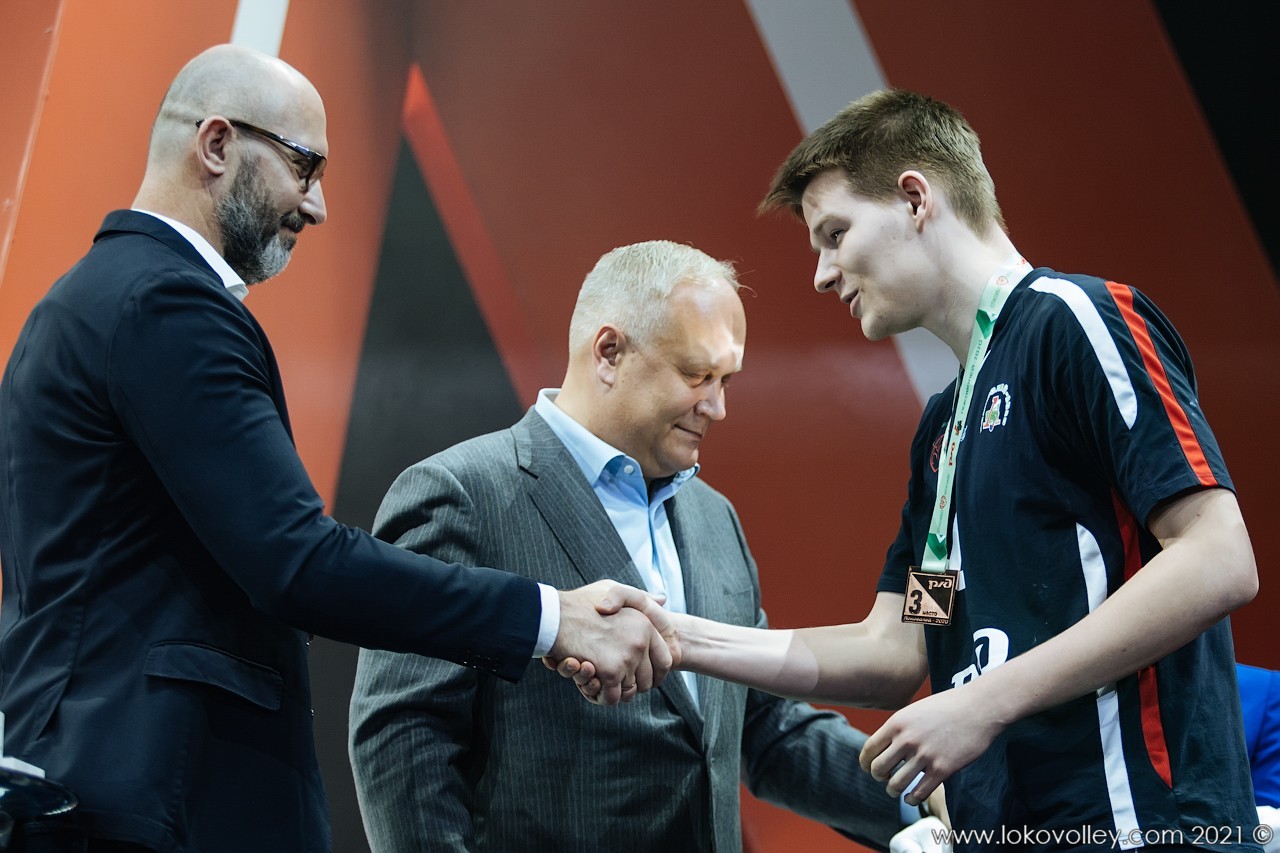Lokovolley finals account for major Volleyball party in Novosibirsk
Add type of article here
The girls from Kaliningrad and boys from Novosibirsk triumphed in the 2020 edition of the Lokovolley international youth tournament open to players born in 2004 and 2005. Due to the pandemic, the organisers had to postpone the competition from the fall of 2020 to the spring of 2021 and had to accept that they could not invite any foreign teams. Despite this, as many as 12 teams per gender from across the Russian Federation joined the final stage of the competition. In a truly emotional and dramatic Super Final, the teams from Kaliningrad and Novosibirsk emerged as the eventual winners of the event.

The Lokomotiv Arena in Siberia’s largest city welcomed thousands of spectators, who enjoyed a wonderful show before the finals. The tournament paid tribute, doing so through the projection of a touching video, to the doctors and medical personnel who have given their all in the fight against the pandemic. It was a real celebration of Volleyball with two amazing matches to cap the programme.
The women’s final kept the fans in suspense until the last ball. It was something people could expect, because there were two long-standing rivals on the court – the teams representing the Kaliningrad Region and Chelyabinsk. They had met in the final of the previous Lokovolley, with Chelyabinsk taking top honours. Recently in the final round of the youth league, the team from Kaliningrad beat Chelyabinsk, who had to be content with the silver medals. In Novosibirsk, these teams had already locked horns in the pool stage, with Kaliningrad having the upper hand after a gripping tiebreak. Obviously, the girls from Chelyabinsk were eager to take their revenge. Moreover, one of the most prestigious titles in Russian youth volleyball was at stake. The fight in the Super Final again reached a tiebreak, where the Kaliningrad team celebrated another victory.

The boys from Novosibirsk are regular participants of the Super Finals and the most decorated side in the competition. The team from Nizhny Novgorod had fought for the title of Lokovolley in St. Petersburg in 2019. This time, the group led by Ivan Shikhov and Ivan Gromov took second place in the group. They beat Novokuybyshevsk in an incredible semi-final, whereby the boys from Nizhny Novgorod gained a chance to win the trophy. However, the final match turned out to be shorter than the title-deciding game of the girls – as the hosts led by Vyacheslav Kurguzov won the title in two sets only. Only three players from the Novosibirsk team took part in last year’s tournament: Vasily Molotkov, Alexander Kostadinov and Artem Sinyavsky. The head coach Vyacheslav Kurguzov had never celebrated a Lokovolley triumph before.
After the match, a ceremony followed to present the prizes to the best players of the competition. Dmitry Lyzik, a middle blocker of Lokomotiv Novosibirsk, and Valeriya Zaytseva, a blocker of newly crowned Russian champions Lokomotiv Kaliningrad Region, awarded the following players:
Best scorers: Marina Aslyamova (Kaliningrad Region), Daniil Novinkin (Novokuybyshevsk)
Best blockers: Anastasia Zhabrova (Kaliningrad Region), Mikhail Vishnyakov (Novosibirsk)
Best setters: Alina Vafina (Chelyabinsk), Kirill Bekhterev (Nizhny Novgorod)
Best receivers: Kira Kurylenko (Khakassia), Danila Ishchenko (Nizhny Novgorod)
Most Valuable Players (MVPs): Ekaterina Gatina (Kaliningrad Region), Vasily Molotkov (Novosibirsk).

Alexander Zhukov“The tournament was held at a very high level. It is great that young volleyball players have such a wonderful tournament, which helps discover their abilities. The Lokomotiv Arena is an excellent venue for top-level competitions. Next year, Novosibirsk will host the 2022 FIVB Volleyball Men’s World Championship. I have no doubt that everything will be organised in a perfect way.”
Deputy Chairman of the State Duma and IOC member
Alexander Zhukov, a member of the International Olympic Committee, Andrey Travnikov, the Governor of the Novosibirsk Region, and Anatoly Chabunin, Deputy Managing Director of OJSC Russian Railways all attended the medal ceremony together with Russian Volleyball legend Sergey Tetyukhin.
Andrey Travnikov, Governor of the Novosibirsk Region: “Youth competitions are always emotional. The skills of young athletes are often on the same level as the senior ones, and the support from the stands sometimes decides everything. The atmosphere in the Lokomotiv Arena was incredible, and we enjoyed high-level Volleyball.”
Anatoly Chabunin, Deputy Managing Director of OJSC Russian Railways: “The regional volleyball centre Lokomotiv Arena is a real gift for fans of this sport. The arena meets all international standards. I am glad that young players have the opportunity to play here. As for the final itself, we could watch Volleyball of a very high quality. Anyone could see that the Lokovolley level is growing every year. In the girls’ match, we were witnessing a real struggle between the two rivals. Chelyabinsk did not give up until the last rally, but Kaliningrad won in the end. However, the most important thing is the coverage and spread of Lokovolley. Among the participants, we can see the teams of Tynda, Petropavlovsk-Kamchatsky. Even if they did not become winners of any prizes, their participation is very important. Volleyball is developing across the country and this is the most important result!”
Final standings
Boys
- Novosibirsk
- Nizhny Novgorod
- Novokuybyshevsk
- Ufa
- Krasnoyarsk
- Saint Petersburg
- Khabarovsk
- Ekaterinburg
- Kemerovo
- Chelyabinsk
- Kaliningrad
- Tynda
Girls
- Kaliningrad Region
- Chelyabinsk
- Republic of Khakassia
- Krasnoyarsk Region
- Krasnodar Region
- Novosibirsk
- Nizhny Novgorod
- Republic of Bashkortostan
- Sakha (Yakutia)
- Altai Region
- Chita
- Petropavlovsk-Kamchatsky

About the tournament
Lokovolley is an annual international tournament of children’s and youth volleyball teams organised by OJSC Russian Railways and the volleyball clubs Lokomotiv Novosibirsk and Lokomotiv Kaliningrad region. Over the ten years of the tournament’s existence, more than 150 thousand young athletes have taken part in it, including the youth national teams of China, Japan, Mongolia, Korea, Ukraine, Kazakhstan, Bulgaria, Poland, the Republic of Belarus, Finland and Serbia.